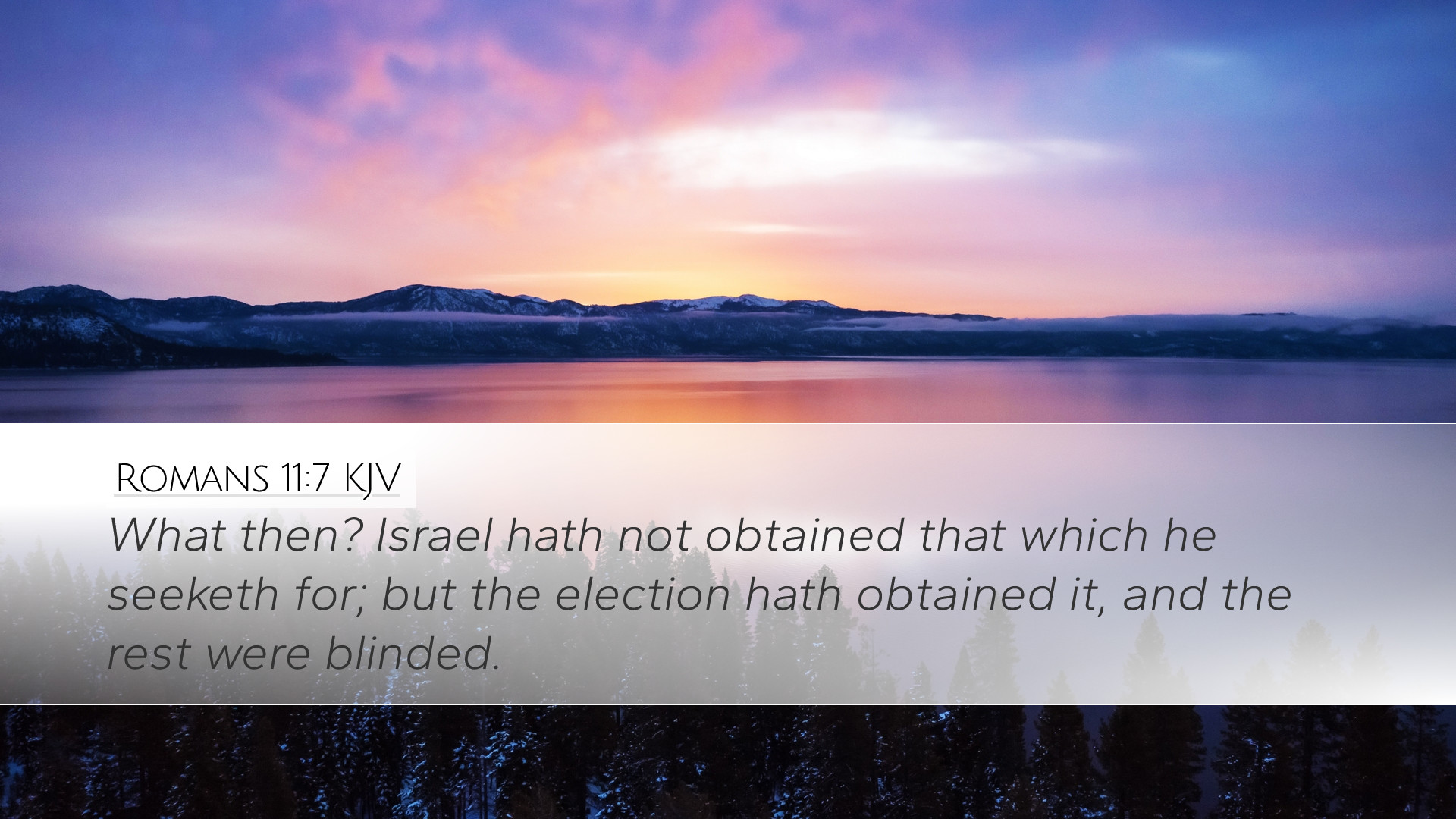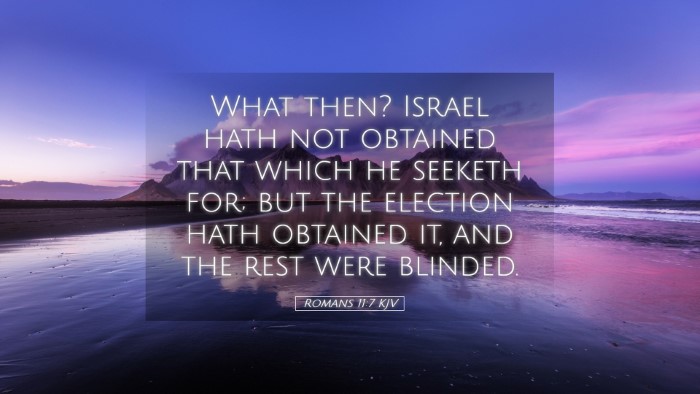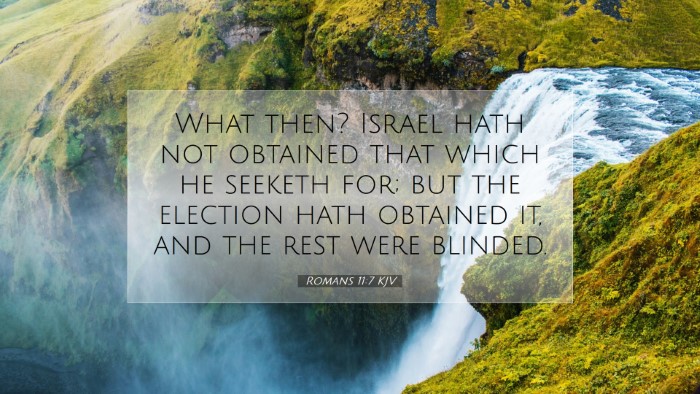Commentary on Romans 11:7
Verse Text: "What then? Israel has not obtained what it seeks; but the elect have obtained it, and the rest were blinded."
Introduction
This verse from Romans 11 is crucial in understanding the Apostle Paul's theological reflection on Israel's relationship with God in the unfolding of salvation history. The complexities of election, spiritual blindness, and the mercy of God are woven intricately in this passage. In this commentary, we will glean insights from respected public domain scholars to deepen our understanding of this profound verse.
Contextual Background
To fully grasp Romans 11:7, it is essential to consider the context of the surrounding chapters. Paul addresses both Jewish and Gentile believers, asserting the validity of God's promises to Israel while simultaneously revealing a divine plan that includes the Gentiles. As Matthew Henry notes, this passage strikingly contrasts the fate of Israel as a nation with the group designated as the 'elect.'
The Dual Nature of Israel
Paul poses a rhetorical question: "What then?" This signals a critical moment of inquiry. According to Albert Barnes, this question serves to clarify the situation regarding Israel’s spiritual state. The implication is that not all of Israel has attained what they fervently sought—namely, justification through faith in Christ. Instead, there exists a remnant, the 'elect,' who have embraced Christ and received salvation.
Adam Clarke emphasizes that the term 'Israel' refers not just to the physical descendants of Abraham but to the spiritual Israel, comprising all who believe. The tension between the majority of Israel and the faithful remnant captures the essence of Paul’s argument throughout Romans.
Election and the Remnant
The phrase "the elect have obtained it" reveals the concept of divine election. Matthew Henry comments on this by stating that this elect group consists of those chosen by God for salvation. This election is not based on their actions but solely on God's mercy and grace. The remnant represents God's faithfulness, a theme that resonates throughout biblical history.
- God's Sovereignty: The notion of election emphasizes God's sovereign choice in the process of salvation. This sovereignty is comforting to believers, indicating that God is actively involved in the redemption story.
- Divine Mercy: The mercy of God, as highlighted by Clarke, underscores that while many are blinded, a remnant is saved. This dichotomy is a manifestation of God's grace, extending to those who believe even amidst widespread disobedience.
Spiritual Blindness
The second half of the verse—"and the rest were blinded"—speaks to the spiritual condition of those who rejected Christ. This blindness is not an accident but a deliberate allowance by God as Paul elaborates elsewhere (Romans 1:24-28). Barnes asserts that this state is a judgment stemming from their persistent unbelief.
Henry adds that this judicial blindness serves both as a consequence of their rejection and as a mechanism through which God's plan is revealed. This idea is echoed in the Old Testament, where disobedience led to a hardening of heart (Isaiah 29:10).
Implications for Believers
This passage carries significant implications for contemporary believers. Firstly, it raises awareness of the necessity for evangelism among those who are spiritually blind. Clarke notes that the shocking realization that many who are part of the covenant people can be lost compels the Church to urgently share the Gospel.
Secondly, it encourages believers to find assurance in God's election. As the elect are secure in their standing before God, they are called to live out their faith in a manner reflective of their election—a life characterized by holiness, gratitude, and service.
- Evangelism: Awareness of spiritual blindness should ignite a passion for reaching out to those who do not know Christ.
- Assurance: Believers can rest assured in their salvation, knowing it is dependent not on their merits but on God's grace.
Conclusion
In Romans 11:7, Paul expertly encapsulates the tension of Israel's current spiritual landscape—one of seeking yet not obtaining, of election yet widespread blindness. The insights gained from public domain commentaries like those of Henry, Barnes, and Clarke enrich our understanding of this verse, offering profound theological truths for pastors, students, and theologians alike.
This verse stands as a testimony to the complexity of God's plans, illuminating His judgment, mercy, and the unfathomable depths of His grace toward those who believe. May all who engage with this rich text be stirred to deeper faith and a commitment to fulfilling their role in God's ongoing narrative of redemption.


